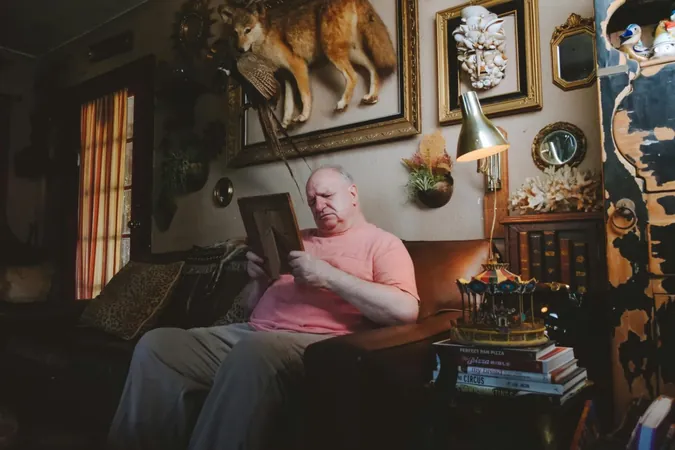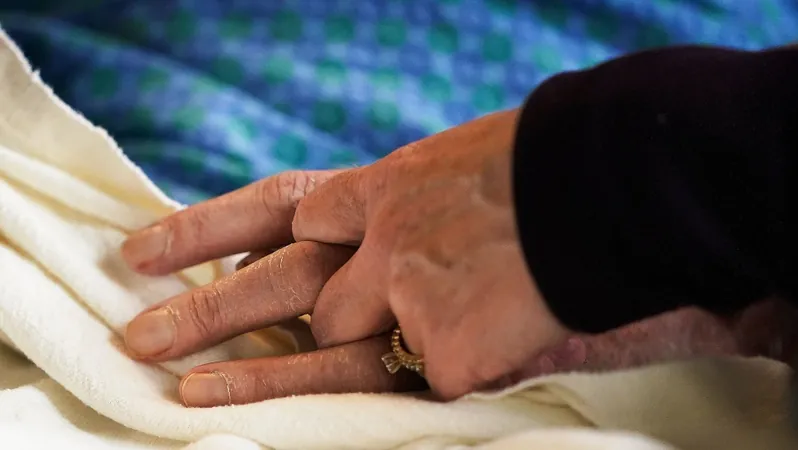
The Gripping Reality of Alzheimer’s: A Family's Unending Struggle
2024-09-27
The heartbreak of an Alzheimer's diagnosis often feels like an insurmountable journey with no resolution in sight. Recently, I decided to share my family's experience to shed light on this harrowing path and to show those enduring similar trials that they are not alone—there is understanding and solidarity amongst us.
The Central Struggle
At the center of our ordeal is my brother-in-law, who is currently in the mid to late stages of this relentless disease. According to the Alzheimer Society of Canada, this is typically when families face the difficult choice of opting for in-home care or transitioning to long-term facilities. As the disease progresses, symptoms extend beyond memory loss and confusion to encompass challenges in communication, personal hygiene, basic self-care, and sleep.
The Burden of Caregiving
While I aim to express my family's reality, I want to acknowledge the incredible burden placed upon caregiving agencies and their staff—who are often overworked, understaffed, and possibly underpaid. Nevertheless, our family’s perspective has been riddled with frustration and worry amidst navigating this chaotic system.
The Assessment Process
One of the most exasperating aspects of this journey is the myriad assessments we have faced to evaluate what household assistance—if any—might be allocated by the government. This tedious process has involved countless calls, appointments, and paperwork. The Ontario Health at Home organization finally deemed that my sister could have a personal support worker come for three hours, twice a week. Although grateful for any support, we felt three hours was far too little to meet basic needs—be it grocery shopping, medical appointments, or even grabbing a moment of rest.
Experiences with Care Workers
Our first personal support worker was less than ideal. Rather than providing attentive care, he was preoccupied with his own conversations—often lounging around, watching TV, or scrolling through his phone while my brother-in-law was unattended. This lack of oversight led to incidents that rendered our family anxious and unsure about the reliability of care.
The subsequent worker provided a marginally better experience, yet still seemed more focused on passive supervision rather than engaging actively with my brother-in-law. We learned with distress that caregivers are not permitted to take clients outside, a precaution rooted in insurance policies, hence limiting beneficial interactions with the outside world.
Questionable Care Standards
Interestingly, despite being allotted a three-hour window, both workers mentioned they could leave early at our discretion. This arrangement left us questioning the validity of the care standard. While we sought additional help from trained employees at the Alzheimer Society, who offered us valuable resources to stimulate brain activity through crafts and puzzles, the reality remained: in-home care fell short of our necessary standards.
Awaiting Long-Term Care
As we navigate this, we also await the elusive vacancy for long-term care. For those unfamiliar with this waiting game, it’s a painfully slow and stressful process, wherein patients with dementia cannot be placed in standard facilities due to safety concerns. Secured units that cater to their specific needs are sparse and deeply coveted.
Confronting Hard Decisions
While seeking a suitable facility, we confronted various inquiries regarding my brother-in-law's daily needs—ranging from assistance with meals to socialization capabilities. Each additional service lifted the monthly fee higher, with one estimate reaching $5,000 before we were told he was too advanced for their care. In reality, we are left anxiously waiting for notification from any facility offering a room, grappling with the grim decision that lies ahead: entrusting our beloved family member to the care of strangers.
Can we reconcile the fear that he might understand his abandonment? Or the guilt of passing this difficult burden onto someone else? Rejecting an offer could mean losing our chance at care altogether, leaving us feeling even more trapped when the situation deteriorates.
A Note of Gratitude
To say there are no happy endings feels like an understatement. Still, amidst the chaos, it’s worth noting the compassion and kindness shown to us by every caregiver we’ve encountered, regardless of their initial lack of efficacy. For this unwavering humanity, we hold profound gratitude.
A Call for Better Support
Our story highlights the urgent need for better support and resources for families facing Alzheimer’s—an illness that steals not just memories but the very essence of our loved ones.









 Brasil (PT)
Brasil (PT)
 Canada (EN)
Canada (EN)
 Chile (ES)
Chile (ES)
 España (ES)
España (ES)
 France (FR)
France (FR)
 Hong Kong (EN)
Hong Kong (EN)
 Italia (IT)
Italia (IT)
 日本 (JA)
日本 (JA)
 Magyarország (HU)
Magyarország (HU)
 Norge (NO)
Norge (NO)
 Polska (PL)
Polska (PL)
 Schweiz (DE)
Schweiz (DE)
 Singapore (EN)
Singapore (EN)
 Sverige (SV)
Sverige (SV)
 Suomi (FI)
Suomi (FI)
 Türkiye (TR)
Türkiye (TR)